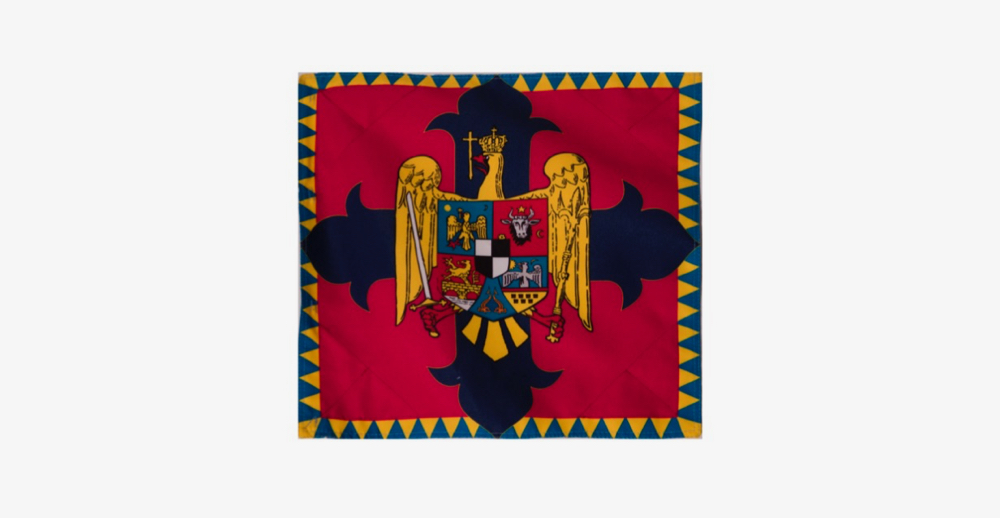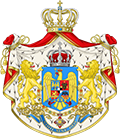Speech of Her Majesty The Custodian of the Crown, December 13, 2023

Speech of Her Majesty Margareta Custodian of the Romanian Crown
Royal Evening of the Diplomatic Corps
Throne Hall, Royal Palace in Bucharest, Wednesday, 13 December 2023
Dean of the Diplomatic Corps, Your Excellencies, Ladies and Gentlemen,
I am grateful to you for attending this evening’s gathering, which continues the tradition of the yearly reception of the Diplomatic Corps in Bucharest going back to the days of Carol I in the 19th century, in 1866, more precisely. This was one of the first traditions my father, King Michael, revived when he returned to the country in 1997.
I would also like to reiterate my admiration to all of you for your dedication to promoting and consolidating the relations between Romania and the countries you represent. I hardly need to tell you that the art of diplomacy today has evolved; I can follow your activities online, and I am particularly impressed by your valuable engagement with our society, NGOs, and various business communities.
My husband and I undertook many foreign visits and missions this year, including critical visits to Sweden and Spain, the two nations that held the rotating presidency of the European Union, and to one of our oldest and closest allies, Poland. Everywhere we went, we underlined Romania’s continued contribution as a full member of the EU and NATO and our determination to promote the integration of the Republic of Moldova into our continent’s security structures.
Your Excellencies,
Many of you represent nations outside the European continent with their own preoccupations and challenges. And we all watch the tragic developments in the Middle East with apprehension and sorrow.
These events affect Romania profoundly, not only because the security of the Middle East is also Europe’s security but also because my country has deep historical and emotional bonds with the region. Hundreds of thousands of Israelis affected by the current fighting trace their family roots to Romania. And hundreds of Romanian citizens found themselves caught in the war in Gaza. These tragedies are certainly no less significant than those in Europe. Nonetheless, I hope you will understand if I guide your attention to the precarious situation in our region.
I have never agreed with those who argue that the war in Ukraine is a limited affair concerning just one country. Our nations support Ukraine’s self-defence efforts today not only because this is morally right and legally justified but also because we know that a victory for Ukraine is essential for the security of our entire continent. And Finland and Sweden decided to join NATO because they understood that what is happening in Ukraine is overturning all our previous assumptions about European defence arrangements.
Yet, well before Russian tanks violated the sovereignty of Ukraine, vulnerable Moldova was already subjected to the sort of aggression and strategies that subsequently also became Ukraine’s fate. Moldova has survived, but it has remained relatively poor and very vulnerable. And just when it elected a pro-Western leader and government determined to eliminate corruption and consolidate democratic institutions, the invasion of Ukraine has placed Moldova in a highly dangerous situation. The connection between the war in Ukraine and Moldova’s situation is evident for all to see and continues.
Ladies and Gentlemen,
We must – absolutely must! – fight the air of hopelessness that threatens to paralyse our thinking about European security arrangements at this moment. And we can do this by focusing on three interrelated approaches.
Yes, the war in Ukraine shows no signs of ending. And, yes, our hopes earlier this summer that the tide of warfare was turning in Ukraine’s direction did not turn out as expected. But let’s never forget Ukraine’s courage and Ukraine’s achievement in continuing to stand up to the aggressor. We should remain by Ukraine’s side for as long as they want us, for the alternatives are simply too awful to contemplate.
Secondly, Russia’s attempts to destabilize Moldova will continue to increase, almost in inverse proportion to the fighting in Ukraine. Ensuring that Moldova remains firmly committed to its European integration policy is an inseparable part of ensuring that Ukraine prevails in its defences; the two are sides of the same coin.
And, finally, we must remember that, hand in hand with rebuffing Russian aggression, the only way of ensuring stability and prosperity is by proceeding with the integration of Ukraine and Moldova and – when the time comes, also Georgia – into the European Union and any other European security or cooperation structure. If these structures are good for us, they are also suitable for them; it’s as simple as this.
I am proud of what our country’s political authorities have achieved. This year, we moved from merely discussing Ukraine and Moldova’s integration in theoretical terms to actually laying the foundations of this integration. The differences that previously existed between Kyiv and Bucharest, many invented by the communist despots of the Soviet Union, have now been removed. And although it is clear that the integration of Ukraine and Moldova will be costly and complicated, most of our decision-makers in most European capitals have accepted that the alternatives are likely to be more expensive still. So, we are on the right track.
Even so, the situation remains both precarious and dangerous. The Chisinau authorities are continuously warning that Russia is determined to destabilize the government of Moldova. And that is because turmoil in Moldova would create a real danger at the rear of Ukraine’s main forces now resisting the invasion.
The objective I have undertaken with the support of both the Romanian and Moldovan Governments is one of ensuring that the Republic of Moldova is not consumed by the tragedy now afflicting Ukraine, that her reformist government is supported in achieving its objective, and that the people of Moldova are allowed to decide their own future, rather than have it determined by others.
Yes, the wealth gap between Moldova and the EU remains big. And indeed, there are serious governance problems in the country. But at the same time, the Moldovans are probably one of Europe’s most ardent supporters. And the population is of a modest size, so the process of integration and the price that must be paid for this remains modest.
Whenever the Ukraine war ends, Ukraine will need security guarantees and vast economic reconstruction funds, and neither would produce the necessary results unless Moldova is included in the equation.
Ladies and Gentlemen,
While working for the inclusion of Ukraine and Moldova into our structures, we also need to pay attention to strengthening the existing pillars of our security and prosperity.
I very much hope that the lengthy debate about Romania and Bulgaria’s inclusion into Schengen will be resolved; there is no objective justification for continuing this discussion. Border controls and immigration matters are indeed among Europe’s most pressing challenges today. However, this requires proper cooperation between all EU member-states rather than grandstanding for domestic political reasons.
A similar logic also applies to NATO: we must all contribute more and work harder for the further cohesion and operational transformation of our alliance. We must be able to demonstrate persuasively to our allies across the Atlantic, who remain crucial to our own defences, that we really do stand united.
I know many other priorities are facing us today, and all require our attention. Nonetheless, at the risk of stating the obvious, we don’t usually get to choose the crises; the crises pick us. Let us, for once, anticipate the next crisis. By doing everything possible to ensure that Ukraine continues to resist aggression and that Moldova remains whole and free.
Thank you!
